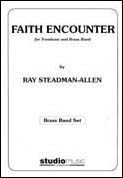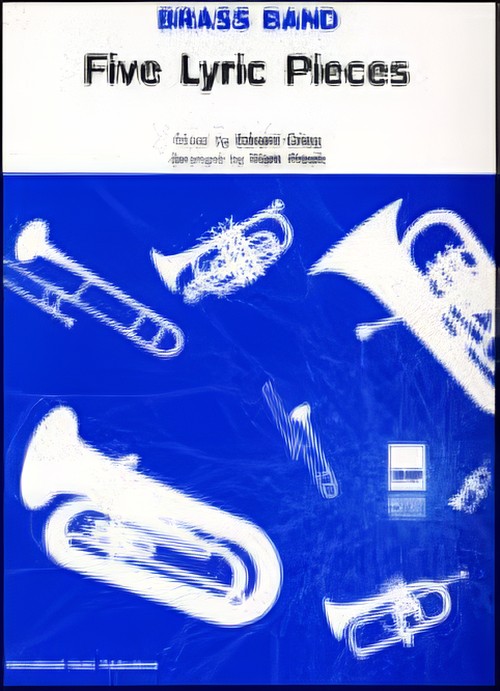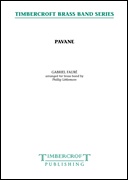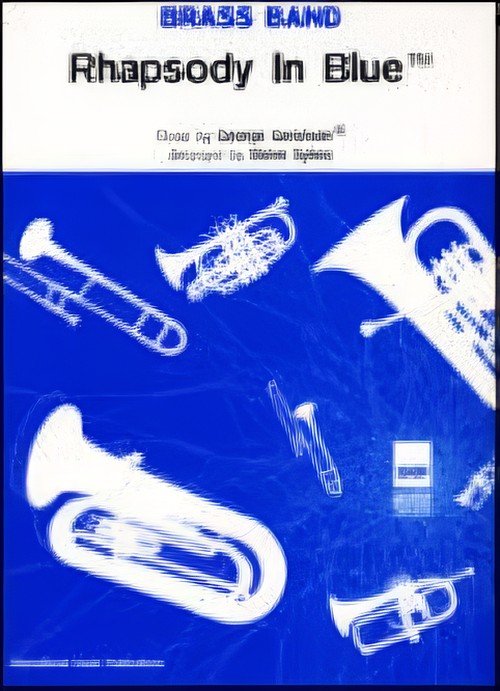Results
-
 £49.95
£49.95FAITH ENCOUNTER (Trombone/Brass Band) - Steadman-Allen, Ray
for Trombone & Brass Band. An edition with piano accompaniment is available separately. Recorded by Brett Baker with the Boscombe Band of the Salvation Army on Polpyhonic CD QPRL223D Faith Encounter.
Estimated dispatch 7-14 working days
-
 £34.99
£34.99Five Lyric Pieces (Brass Band - Score and Parts) - Grieg, Edvard - Freeh, Mark
Mark Freeh's arrangement of five of Grieg's Lyric Pieces are taken from the orchestral adaptations from the composer himself. Grieg wrote 66 piano miniatures, all referred to as lyric pieces.Includes:Norwegian MelodyEvening in the MountainsPuckSolitary TravellerHailing-Norwegian DanceSuitable for 1st Section Bands and aboveDuration: 12.00
Estimated dispatch 7-14 working days
-
 £37.95
£37.95HANDEL'S HORNPIPE (Tenor Horn/Brass Band) - Handel, George Frideric - Reader, Bernard
Tenor Horn Solo & Brass Band. A separate Piano Accompaniment edition is also available. Solo UK Grade 8
Estimated dispatch 7-14 working days
-
 £37.95
£37.95HIGGY JIG (Tenor Horn/Brass Band) - Richards, Goff
Tenor Horn Solo & Brass Band. A separate Piano Accompaniment edition is also available. Solo UK Grade 8.
Estimated dispatch 7-14 working days
-
 £19.50
£19.50LET ME TRY AGAIN (Soprano Cornet/Brass Band) - Caravelli, Francois - Kerwin, Simon
Soprano Cornet & Brass Band. Also available with Piano accompaniment
Estimated dispatch 7-14 working days
-
 £37.95
£37.95OVER THE RAINBOW (Tenor Horn/Brass Band) - Arlen, Harold - Richards, Goff
Tenor Horn Solo & Brass Band. Recorded on QPRL084D Light as Air. A separate Piano Accompaniment edition is also available. Solo UK Grade 6
Estimated dispatch 7-14 working days
-
 £25.00
£25.00Pavane (Brass Band - Score and Parts) - Faure, Gabriel - Littlemore, Phillip
It is believed that Gabriel Faure wrote his Pavane as a piano piece in 1887, describing it as 'elegant, but not otherwise important'. He began work on the orchestral version a few months later, and scored it for modest forces, with the intention of performing it at a series of light Summer concerts that same year. At the behest of his benefactor, Elisabeth Greffulhe, he added a four-part choir, but it is rarely heard with the chorus these days. From the outset, the Pavane enjoyed great popularity. The music flows delicately and gracefully. A pulse beats gently and constantly beneath the arching melody lines, with elegant harmonic shifts and turns before the briefest of dramatic episodes. Calm is restored and the work draws to a tranquil conclusion. Duration: 6:00
Estimated dispatch 7-14 working days
-
 £27.95
£27.95Queen of the Night Aria (Soprano Cornet Solo with Brass Band - Score and Parts) - Mozart, Wolfgang Amadeus - Golland, John
Soprano Cornet & Brass Band. Also available with Piano accompaniment
Estimated dispatch 7-14 working days
-
 £45.00
£45.00Rhapsody in Blue (Brass Band - Score and Parts) - Gershwin, George - Sykes, Steve
Steve Sykes has taken the main themes from George Gershwin's classic 1924 Rhapsody in Blue for piano and concert jazz orchestra to form a tuneful selection for brass band.Suitable for Advanced Youth/3rd Section Bands and aboveDuration: 8:00
Estimated dispatch 7-14 working days
-
 £37.95
£37.95RHAPSODY No.1 (Tenor Horn/Brass Band) - Golland, John
Tenor Horn Solo & Brass Band. A separate Piano Accompaniment edition is also available. Solo UK Grade 8
Estimated dispatch 7-14 working days
